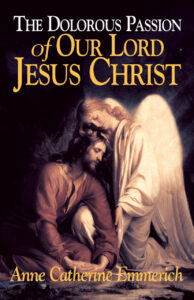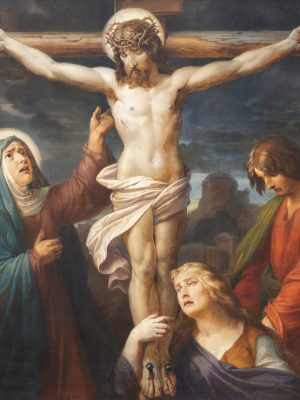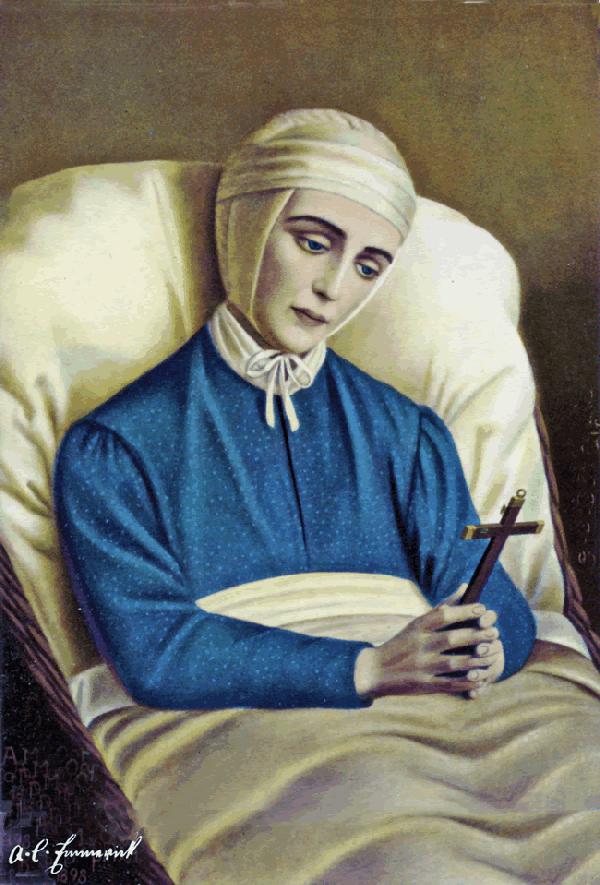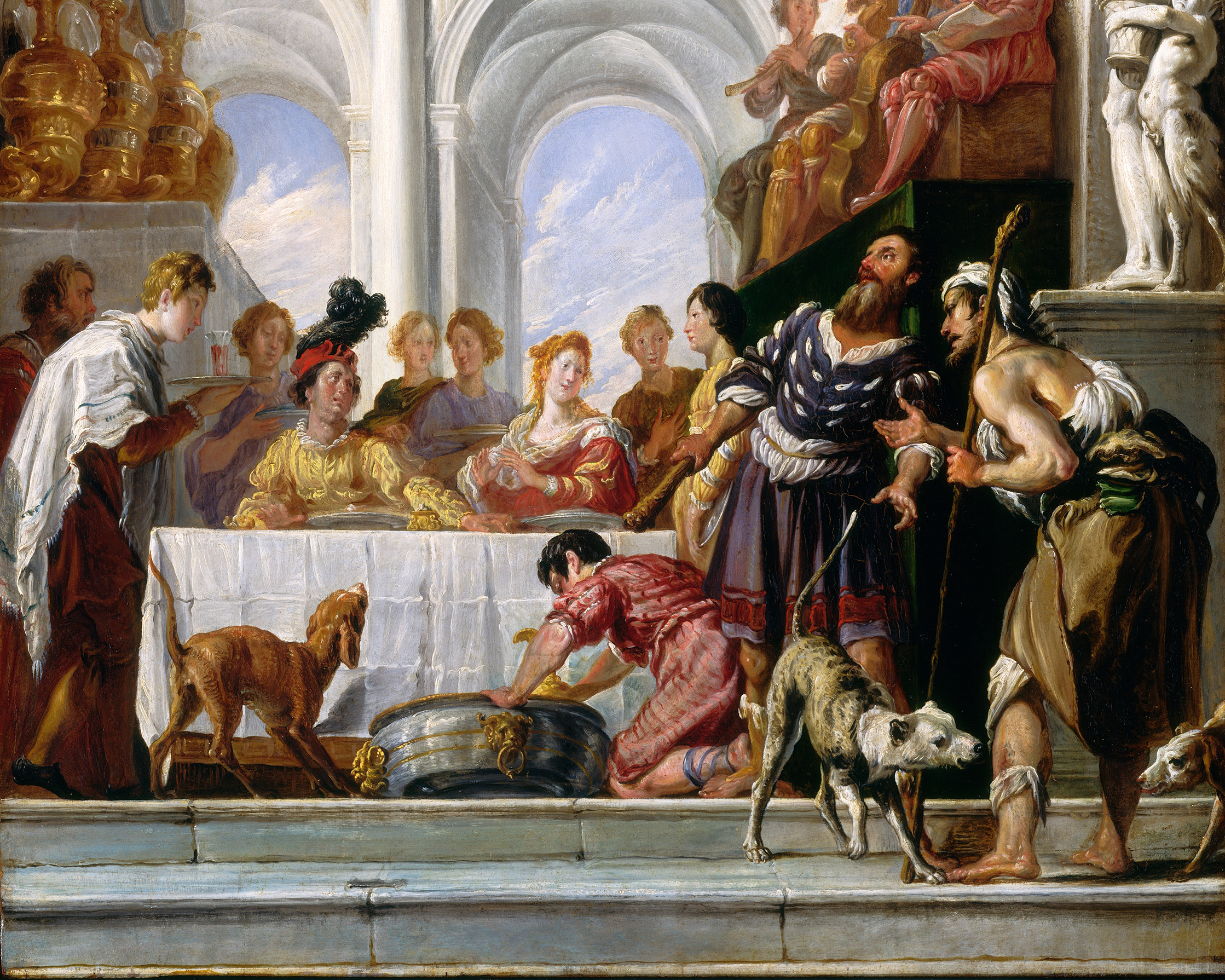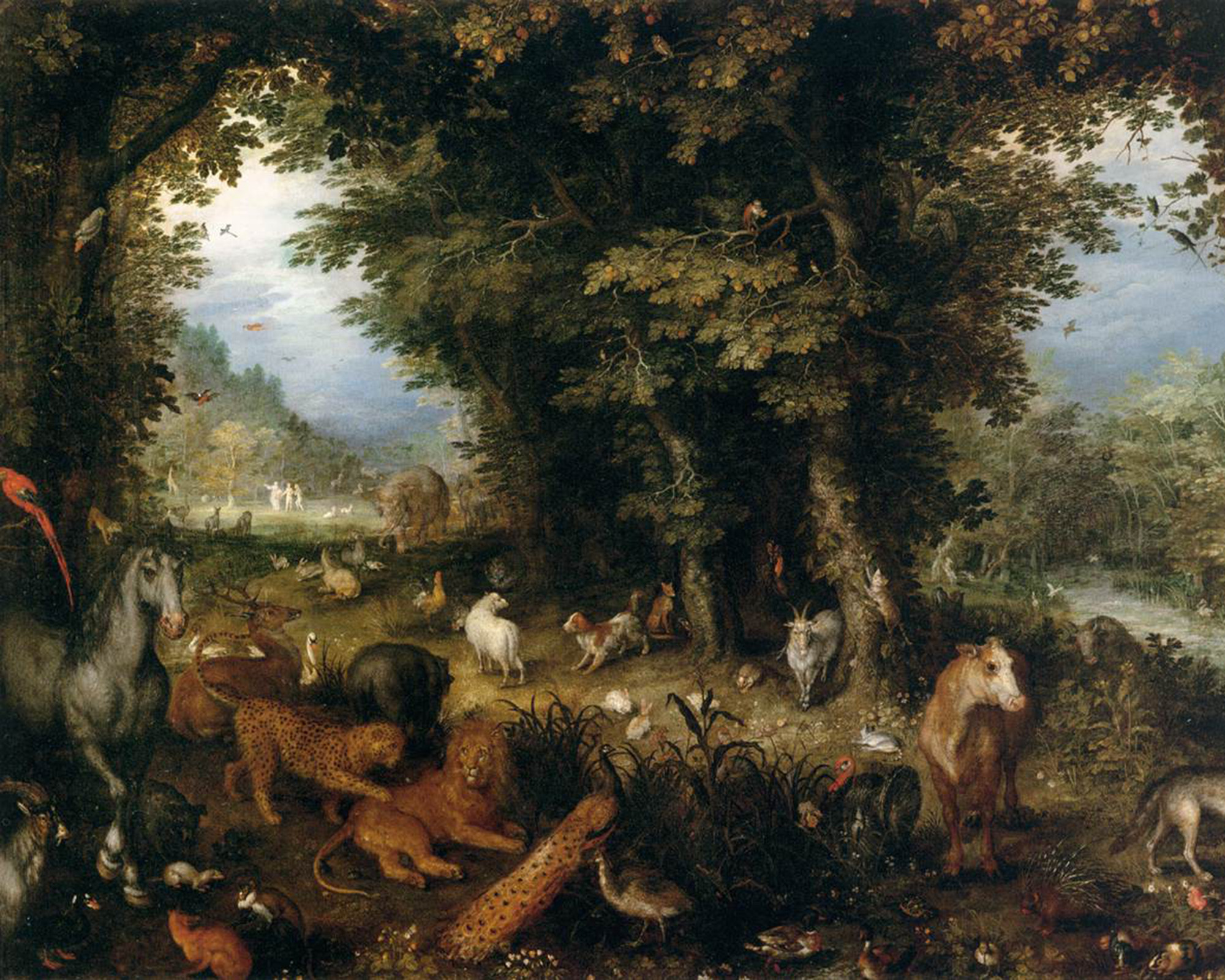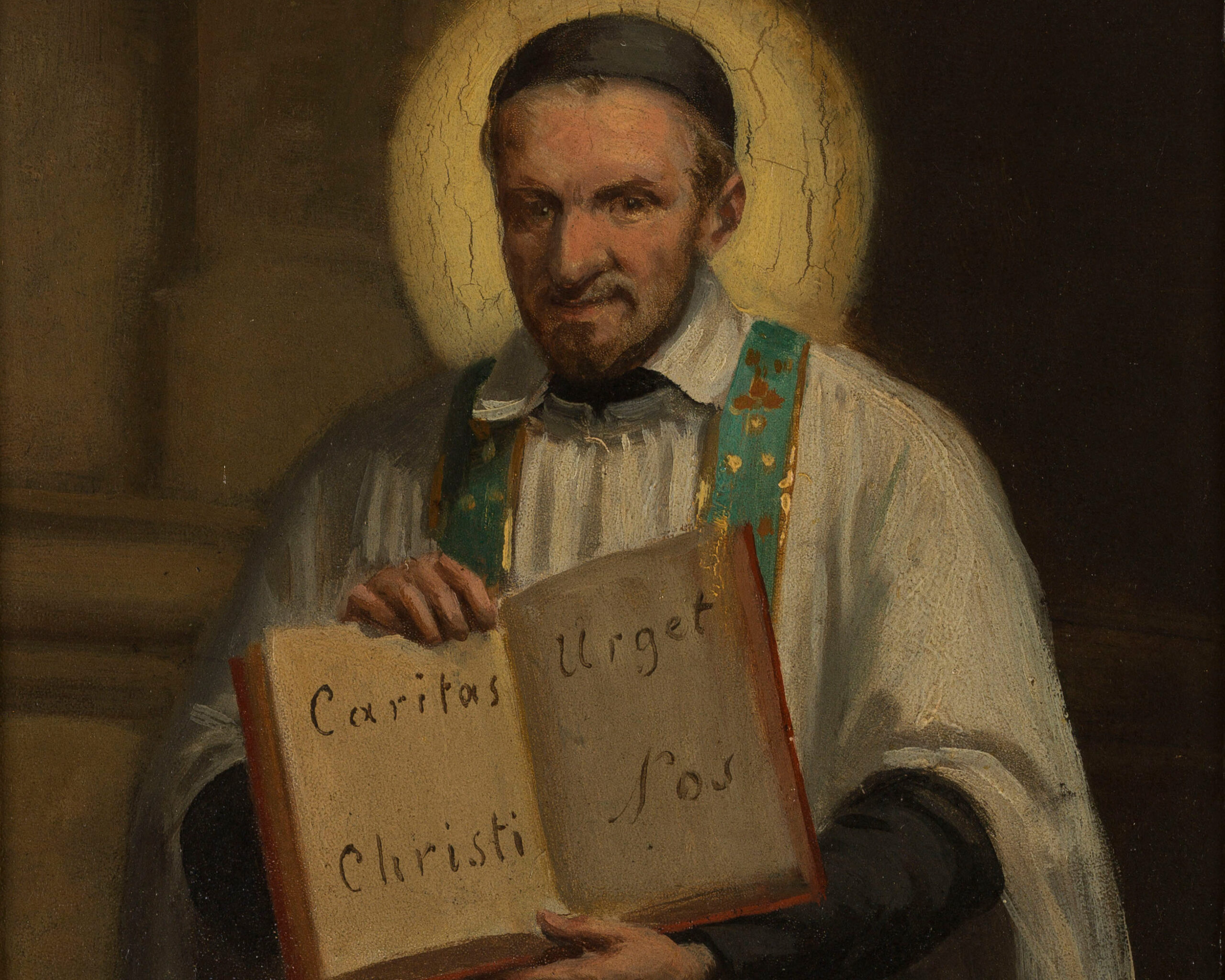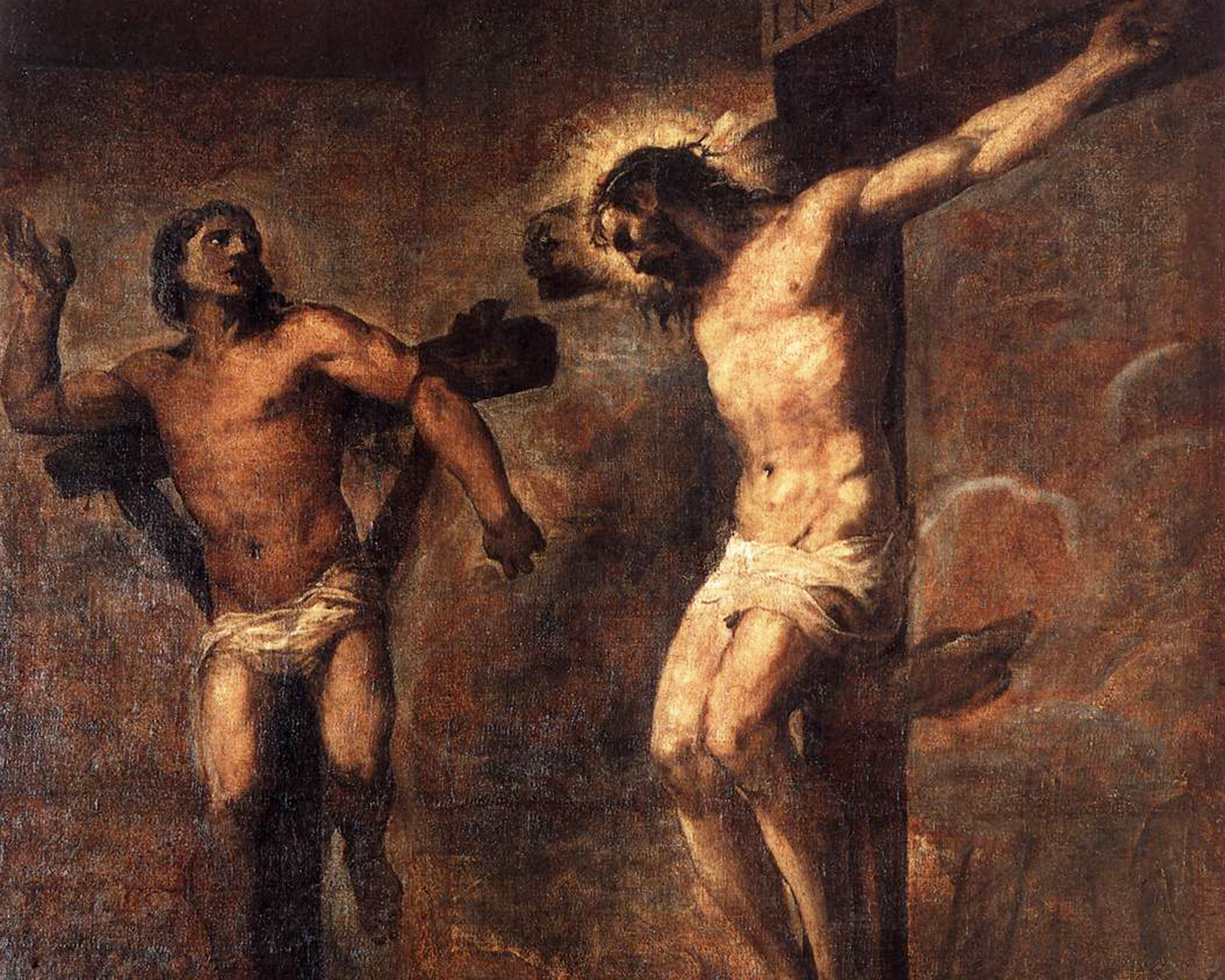Stillness reigned around the Cross. Jesus hung upon it alone; forsaken by all—disciples, followers, friends, His Mother even was removed from His side; not one person of the thousands upon whom He had lavished benefits was near to offer Him the slightest alleviation in His bitter agony—His soul was overspread with an indescribable feeling of bitterness and grief—all within Him was dark, gloomy, and wretched. The darkness which reigned around was but symbolical of that which overspread His interior; He turned, nevertheless, to His Heavenly Father, He prayed for His enemies, He offered the chalice of His sufferings for their Redemption, He continued to pray as He had done during the whole of His Passion, and repeated portions of those Psalms the prophecies of which were then receiving their accomplishment in Him. I saw Angels standing around.
Again I looked at Jesus—my beloved Spouse—on His Cross, agonizing and dying, yet still in dreary solitude. He at that moment endured anguish which no mortal pen can describe—He felt that suffering which would overwhelm a poor weak mortal if deprived at once of all consolation, both divine and human, and then compelled, without refreshment, assistance, or light, to traverse the stormy desert of tribulation upheld by faith, hope, and charity alone. His sufferings were inexpressible; but it was by them that He merited for us the grace necessary to resist those temptations to despair which will assail us at the hour of death—that tremendous hour when we shall feel that we are about to leave all that is dear to us here below. When our minds, weakened by disease, have lost the power of reasoning, and even our hopes of mercy and forgiveness are become, as it were, enveloped in mist and uncertainty—then it is that we must fly to Jesus, unite our feelings of desolation with that indescribable dereliction which He endured upon the Cross, and be certain of obtaining a glorious victory over our infernal enemies.
Jesus then offered to His Eternal Father His poverty, His dereliction, His labors, and, above all, the bitter sufferings which our ingratitude had caused Him to endure in expiation for our sins and weaknesses; no one, therefore, who is united to Jesus in the bosom of His Church must despair at the awful moment preceding his exit from this life, even if he be deprived of all sensible light and comfort; for he must then remember that the Christian is no longer obliged to enter this dark desert alone and unprotected, as Jesus has cast His own interior and exterior dereliction on the Cross into this gulf of desolation; consequently he will not be left to cope alone with death, or be suffered to leave this world in desolation of spirit, deprived of heavenly consolation. All fear of loneliness and despair in death must therefore be cast away; for Jesus, who is our true light, the Way, the Truth, and the Life, has preceded us on that dreary road, has overspread it with blessings, and raised His Cross upon it, one glance at which will calm our every fear. Jesus then (if we may so express ourselves) made His last testament in the presence of His Father, and bequeathed the merits of His Death and Passion to the Church and to sinners. Not one erring soul was forgotten; He thought of each and every one; praying, likewise, even for those heretics who have endeavored to prove that, being God, He did not suffer as a man would have suffered in His place. The cry which He allowed to pass His lips in the height of His agony was intended not only to show the excess of the sufferings He was then enduring, but likewise to encourage all afflicted souls who acknowledge God as their Father to lay their sorrows with filial confidence at His feet.
This article is taken from a chapter in The Dolorous Passion of Our Jesus Christ by Anne Catherine Emmerich which is available from TAN Books.
